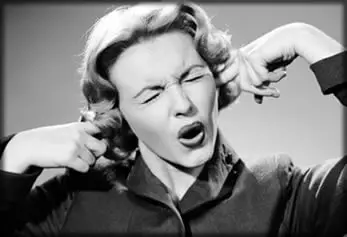A notional place characterized by fantasy, self-absorption and blissful lack of touch with reality.
La-la land
What's the meaning of the phrase 'La-la land'?
What's the origin of the phrase 'La-la land'?
‘La-la land’ isn’t listed on maps, but the label does refer to a real place, that is, Los Angeles, which is of course widely referred to as L.A. The expression has taken on a meaning built partly from the place name and partly from the supposed frivolous and eccentric behaviour of the city’s movie community.
The term began to be used by the general public around the late 1970s and both of the above sources of the expression are found in print in 1979:
Washington Post, 4th February – “Monday night in Lalaland is not like Monday night in, say, Washington.”
Los Angeles Times, 28th July – “Heather was in la-la land after drinking the LSD-spiked iced tea intended for Diana.”
Another link between the phrase and Los Angeles was the 1984 film Beverly Hills Cop. In a scene where Eddie Murphy’s lead character Axel Foley was being criticised by fellow cop Jeffrey Friedman, Foley stuck his fingers in his ears and sang “la la la” to drown out the reproach:
Foley: I am not listening to you.
Jeffrey: Great. Real mature.
Foley: I am not listening to Jeffrey, but he’s still talking.
That gesture became something of a cliché amongst Hollywood types for a few years.
Despite all the associations of ‘la-la land’ with late 20th century Los Angeles, the earliest use of the expression in print is from long ago and far away. A heading in the Los Angeles Times in January 1925 ran:
Miniature motor cars developed by French engineers amaze American government. Commerce Department motor head home again; describes one-man taxis in ‘La-La Land’.
Presumably, the author had in mind the phrase ‘ooh-la-la’, which was in vogue as a recent import from France into the USA in 1925, when that early form of ‘La-la land’ was coined. The phrase never caught on with that meaning, although it might have come in handy as an alternative to the “cheese-eating surrender monkeys” line that the The Simpsons’ writer Ken Keeler used to articulate the USA’s prevailing anti-French sentiment in 1995.
See also Never-never land.
The history of “La – la land” in printed materials
Trend of la – la land in printed material over time
Related phrases and meanings
Browse more Phrases
About the Author

Phrases & Meanings
A-Z
A B C D E F G H I J K L M N O P Q R S T UV W XYZ
Categories
American Animals Australian Bible Body Colour Conflict Death Devil Dogs Emotions Euphemism Family Fashion Food French Horses ‘Jack’ Luck Money Military Music Names Nature Nautical Numbers Politics Religion Shakespeare Stupidity Entertainment Weather Women Work
How did we do?
Have you spotted something that needs updated on this page? We review all feedback we receive to ensure that we provide the most accurate and up to date information on phrases.
